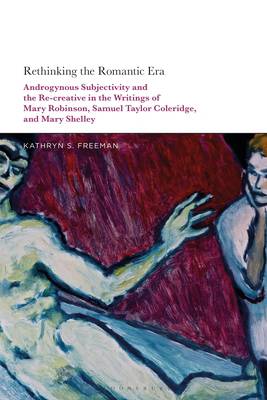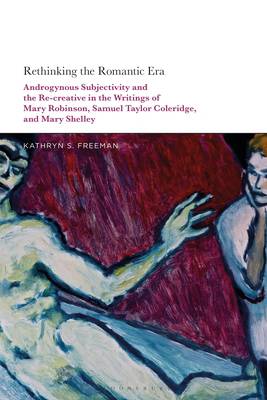
- Afhalen na 1 uur in een winkel met voorraad
- Gratis thuislevering in België vanaf € 30
- Ruim aanbod met 7 miljoen producten
- Afhalen na 1 uur in een winkel met voorraad
- Gratis thuislevering in België vanaf € 30
- Ruim aanbod met 7 miljoen producten
Zoeken
Rethinking the Romantic Era
Androgynous Subjectivity and the Recreative in the Writings of Mary Robinson, Samuel Taylor Coleridge, and Mary Shelley
Kathryn S Freeman
Paperback | Engels
€ 72,95
+ 145 punten
Omschrijving
Focusing on Samuel Taylor Coleridge, Mary Robinson and Mary Shelley, this book uses key concepts of androgyny, subjectivity and the re-creative as a productive framework to trace the fascinating textual interactions and dialogues among these authors. It crosses the boundary between male and female writers of the Romantic period by linking representations of gender with late Enlightenment upheavals regarding creativity and subjectivity, demonstrating how these interrelated concerns dismantle traditional binaries separating the canonical and the noncanonical; male and female; poetry and prose; good and evil; subject and object.
Through the convergences among the writings of Coleridge, Mary Robinson, and Mary Shelley, the book argues that each dismantles and reconfigures subjectivity as androgynous and amoral, subverting the centrality of the male gaze associated with canonical Romanticism. In doing so, it examines key works from each author's oeuvre, from Coleridge's "canonical" poems such as Rime of the Ancient Mariner, through Robinson's lyrical poetry and novels such as Walsingham, to Mary Shelley's fiction, including Frankenstein, Mathilda, and The Last Man.Specificaties
Betrokkenen
- Auteur(s):
- Uitgeverij:
Inhoud
- Aantal bladzijden:
- 176
- Taal:
- Engels
Eigenschappen
- Productcode (EAN):
- 9781350194939
- Verschijningsdatum:
- 25/08/2022
- Uitvoering:
- Paperback
- Formaat:
- Trade paperback (VS)
- Afmetingen:
- 156 mm x 234 mm
- Gewicht:
- 254 g

Alleen bij Standaard Boekhandel
+ 145 punten op je klantenkaart van Standaard Boekhandel
Beoordelingen
We publiceren alleen reviews die voldoen aan de voorwaarden voor reviews. Bekijk onze voorwaarden voor reviews.







